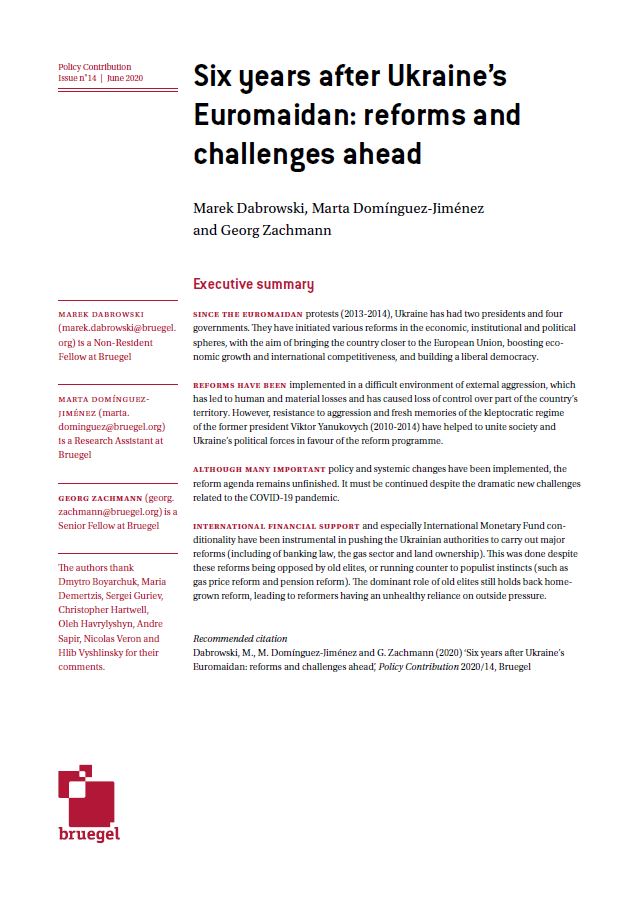Six years after Ukraine’s Euromaidan: reforms and challenges ahead
Since the Euromaidan protests (2013-2014), Ukraine has had two presidents and four governments. In a difficult environment of external aggression, they have initiated various reforms aimed at bringing the country closer to the European Union and boosting growth. Progress has been partial and relies on international backing, with limited domestic appetite for reform.
By: Marek Dabrowski, Marta Domínguez-Jiménez, Georg Zachmann and alihan
Topic: Macroeconomic policy
Date: June 30, 2020









